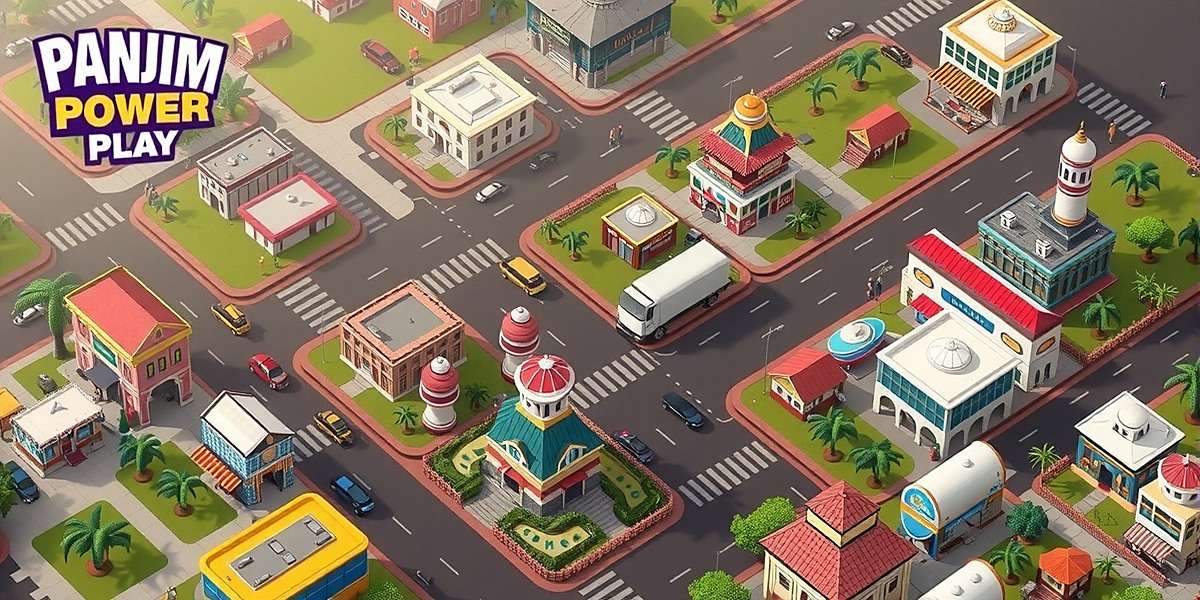Panjim Power Play: Goa's Strategic Multiplayer Sensation
📚 Table of Contents
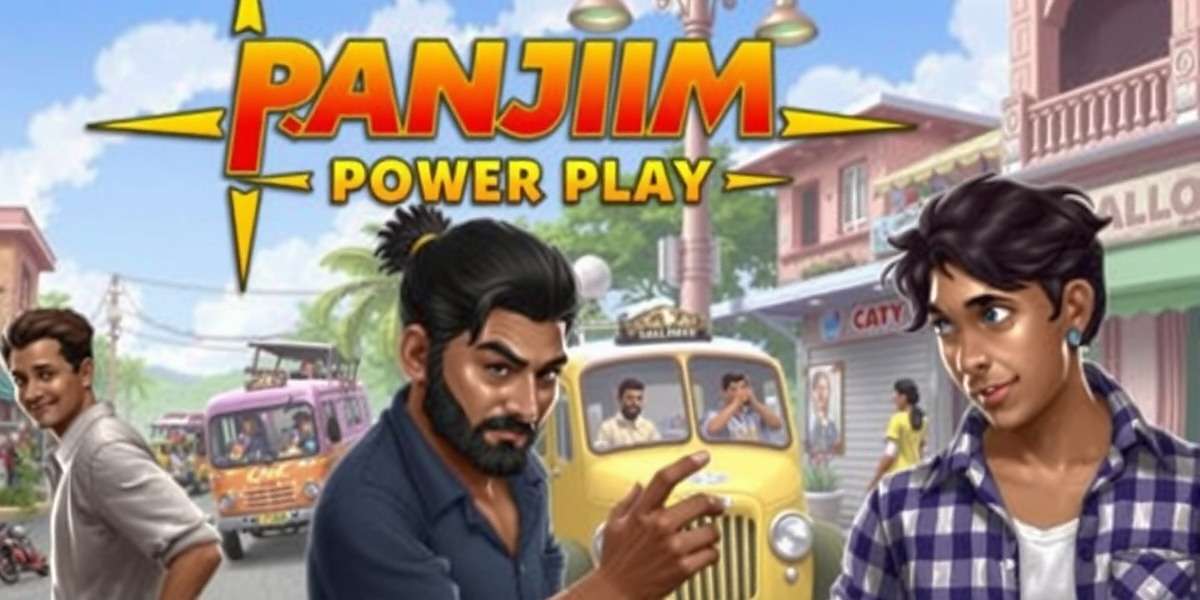
Introduction to Panjim Power Play
Panjim Power Play is India's most innovative multiplayer strategy game, developed by Goa Interactive Studios and launched in October 2021. The game takes its name from Panjim (officially known as Panaji), the capital city of Goa, renowned for its vibrant culture and strategic location.
Blending traditional Indian board game elements with modern digital gameplay, Panjim Power Play offers a unique strategic experience where players build, trade, and compete to become the most powerful entrepreneur in a virtual representation of Goa's bustling economic landscape.
What truly distinguishes Panjim Power Play from other strategy games in India is its authentic incorporation of Goan culture, architecture, and economic activities, while also allowing players from all regions to connect through shared strategic challenges.
The game has achieved remarkable popularity across India due to its easy-to-learn but difficult-to-master gameplay mechanics, colorful visual style inspired by Goan art, and its ability to accommodate both short 10-minute sessions and longer strategic battles.
🏆 Key Milestones of Panjim Power Play
Within just three months of its launch, Panjim Power Play had crossed 5 million downloads, with particularly strong initial adoption in Goa, Maharashtra, and Karnataka. By mid-2022, this number had grown to 30 million, and as of July 2023, the game boasts over 67 million downloads across India.
The game's success can be attributed to its unique combination of cultural authenticity and universal strategic appeal, making it equally popular among casual mobile gamers and hardcore strategy enthusiasts.
Unlike many strategy games that require continuous internet connectivity, Panjim Power Play offers both online multiplayer modes and offline single-player challenges, a feature that has significantly contributed to its popularity in areas with inconsistent internet access.
Development & Release History
The concept for Panjim Power Play emerged from a 2019 game jam hosted in Panaji, where developers were challenged to create games inspired by Goan culture. The initial prototype, developed in just 48 hours, combined elements of traditional Indian board games like Pachisi with modern city-building mechanics.
Impressed by the prototype's potential, Goa Interactive Studios assembled a team of 22 developers, artists, and cultural consultants to expand the concept. The team spent six months conducting research in Goa, interviewing local business owners, historians, and artisans to ensure authentic representation.
"We wanted to create something that felt like Goa – vibrant, diverse, and full of character," explained Maria D'Souza, lead designer, in a 2022 interview. "Too many games set in India use generic tropes, but we wanted Panjim Power Play to feel authentically Goan while remaining accessible to players across the country."
Development faced unique challenges, including accurately representing Goa's multicultural heritage – a blend of Indian, Portuguese, and other influences. The team worked with cultural experts to ensure respectful and accurate portrayal of local traditions and practices.
Closed beta testing began in July 2021 with 100,000 players selected from across India, with special focus groups in Goa to test cultural authenticity. Feedback from this phase led to significant improvements, including simplified tutorials, faster early-game progression, and additional regional content for players outside Goa.
Panjim Power Play was officially launched on October 5, 2021, coinciding with Goa's famous Shigmo festival. The launch event in Panaji featured traditional music, dance performances, and a live multiplayer tournament with local celebrities.
Post-launch development has maintained a consistent schedule, with major updates every 6-8 weeks and smaller quality-of-life improvements biweekly. The development team has maintained an active presence on social media, regularly soliciting and implementing player feedback.
Core Gameplay Mechanics
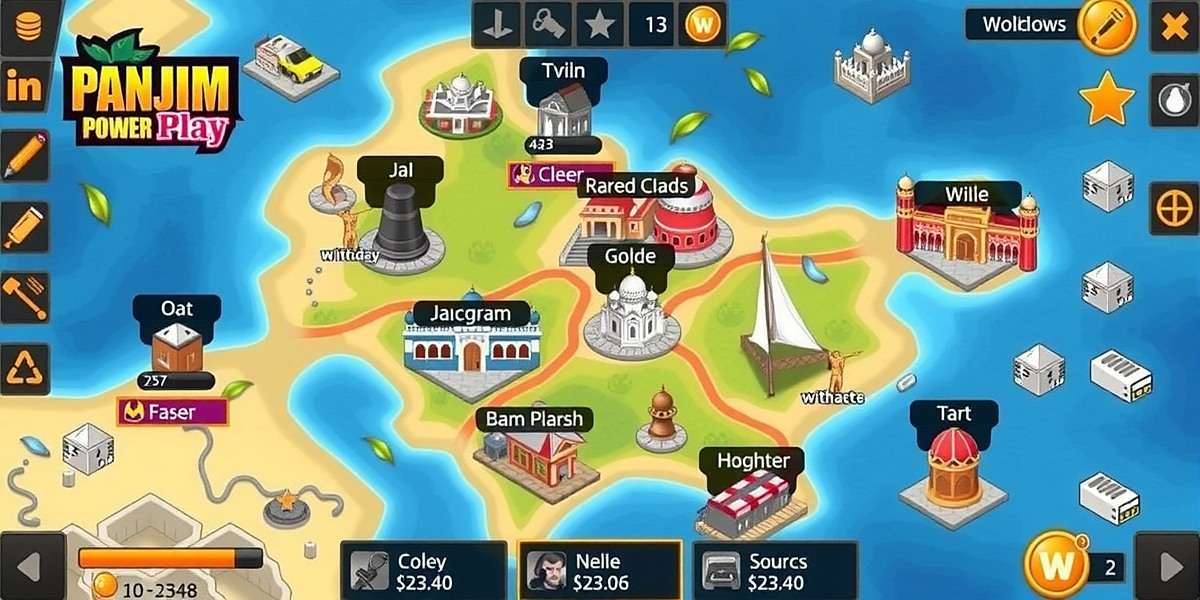
Basic Gameplay Loop
Panjim Power Play centers around building and managing a business empire in a virtual version of Panjim. Players start with a small initial investment and a single property, and must strategically expand their holdings while outmaneuvering competitors.
The core gameplay involves four main activities that form a repeating loop:
1. Acquisition: Purchasing properties, businesses, and resources throughout Panjim's various districts, each with unique advantages and challenges.
2. Development: Upgrading properties to increase their value and income potential, with different upgrade paths reflecting Goan architectural styles and business practices.
3. Trade: Buying and selling resources through marketplaces, with prices fluctuating based on supply and demand, player actions, and in-game events.
4. Competition: Outmaneuvering opponents through strategic deals, temporary alliances, and calculated risks, with opportunities to sabotage competitors' plans (within game rules).
Each game session progresses through a day-night cycle, with certain activities only available during specific times. For example, nightclubs and restaurants generate more income in evening hours, while markets are most active in the morning.
Victory Conditions
Panjim Power Play offers multiple paths to victory, allowing for diverse playstyles:
• Economic Dominance: Achieve the highest total net worth through strategic investments and property development.
• Monopoly Mastery: Control all properties in three or more districts, establishing complete market dominance.
• Cultural Prestige: Restore and maintain historic Goan properties, host cultural events, and earn the highest reputation among virtual citizens.
• Trade Empire: Establish the most extensive trade network, importing and exporting goods across virtual India and beyond.
• Challenge Completion: Successfully accomplish a series of district-specific challenges that reflect local industries and traditions.
This variety of victory conditions ensures that Panjim Power Play remains engaging for different types of players, from those who enjoy pure economic strategy to those who prefer role-playing elements.
Progression System
Players begin as "Apprentices" in Panjim Power Play and progress through 10 ranks based on their accumulated wealth, reputation, and successful strategies. Each rank unlocks new content:
• New properties and districts to explore • Advanced business types and upgrade options • Special abilities and strategic advantages • Customization options for properties and avatar • Access to exclusive tournaments and events
Higher ranks also bring greater challenges, including more sophisticated AI opponents, economic fluctuations, and special events that test players' strategic abilities.
A unique aspect of the progression system is the "Mentorship" feature, where higher-ranked players can guide new players in exchange for special rewards. This has helped create a supportive community and reduced the learning curve for new players.
Key Features & Game Modes
Campaign Mode: "Road to Riches"
The single-player campaign in Panjim Power Play takes players on a journey through Goa's economic history, from the early trading days to modern tourism and technology. The campaign consists of 40 missions set in different time periods, each with unique challenges and historical context.
Missions include:
• Establishing a successful spice trading business in 17th century Panjim • Rebuilding after historic floods while maintaining tourist attractions • Modernizing fishing villages while preserving traditional practices • Hosting international events during the annual Goa Carnival • Balancing tourism development with environmental conservation
Completing campaign missions unlocks historical facts about Goa, 3D models of historic buildings, and special customization items for use in other game modes. This educational aspect has made the game popular in schools across Goa as a supplement to local history lessons.
Multiplayer Modes
Panjim Power Play offers several multiplayer options that have contributed significantly to its popularity across India:
• Free-for-All Battles: 2-6 players competing to become the most successful entrepreneur in Panjim, with no alliances allowed.
• Team Challenges: Cooperative play where teams of 2-3 players work together to achieve common economic goals against other teams.
• Trade League: Turn-based multiplayer where players focus on building the most efficient trade network over several days of real time.
• City Council: A unique mode where players take on roles in Panjim's governance, negotiating policies that affect all players' businesses.
• Speed Play: 10-minute condensed matches with faster income generation and simplified mechanics, perfect for quick sessions.
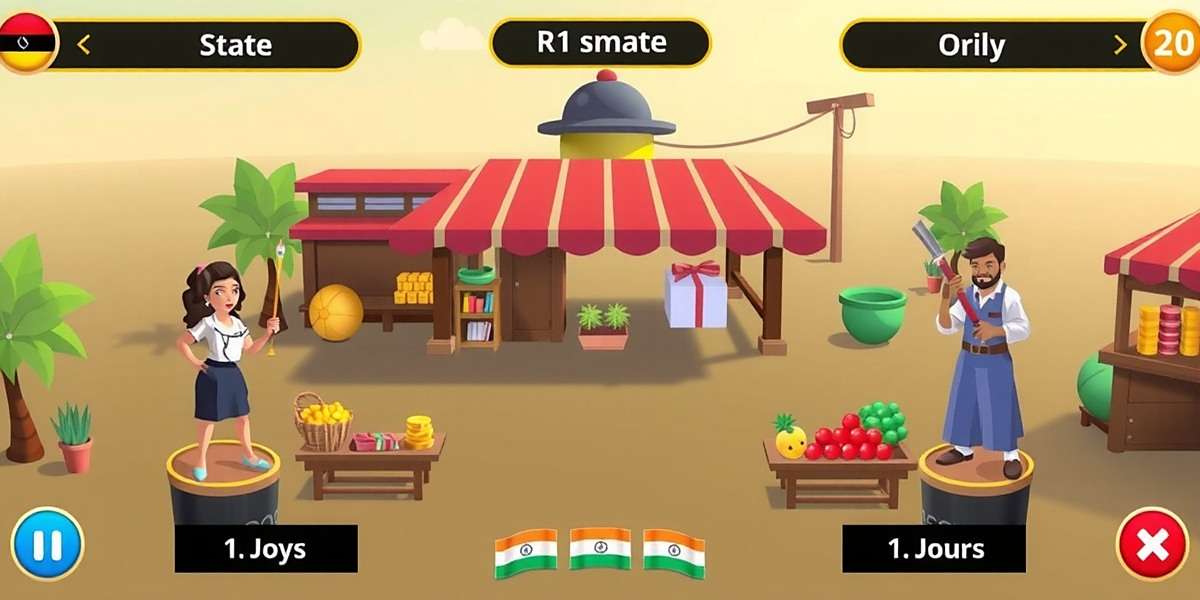
Custom Game Mode
One of the most popular features of Panjim Power Play is the Custom Game mode, which allows players to create their own rules and scenarios. This has led to a vibrant community of players sharing unique game types, including:
• Historical Reenactments: Games set in specific periods of Goan history with appropriate restrictions and goals.
• Themed Challenges: Matches based around specific industries like fishing, tourism, or agriculture.
• Cooperative Disasters: All players working together to save Panjim from virtual natural disasters.
• Role-Playing Games: Matches with special rules that encourage players to take on specific character roles.
Top custom games are featured in the in-game gallery, with their creators receiving special in-game currency and recognition.
Daily Challenges & Events
To keep players engaged, Panjim Power Play offers daily and weekly challenges that test different skills:
• Quick Wins: 5-10 minute challenges focusing on specific mechanics like trading or property development.
• Strategic Trials: Longer challenges requiring careful planning and execution over multiple in-game days.
• Community Goals: Challenges where all players contribute to a common objective, unlocking rewards for everyone when achieved.
Completing challenges earns players "Power Points" that can be exchanged for cosmetic items, special abilities, or in-game currency. The challenge system is refreshed weekly to maintain variety.
Download Information & System Requirements
Panjim Power Play is available as a free download across multiple platforms, with optional in-app purchases for cosmetic items, convenience features, and additional content packs. The game can be downloaded through official app stores or directly from the game's website with proper security verification.
System Requirements
For Android users, Panjim Power Play has been optimized to run on a wide range of devices commonly used across India:
• Minimum Requirements: - Android 6.0 (Marshmallow) or higher - 1GB RAM - 1.2GB free storage space - Quad-core processor
• Recommended Requirements: - Android 8.0 (Oreo) or higher - 2GB RAM - 2GB free storage space - Octa-core processor
For iOS users: - iOS 12.0 or later - Compatible with iPhone, iPad, and iPod touch - 1.5GB free storage space
For Windows users: - Windows 10 or later - 4GB RAM - 3GB free storage space - DirectX 11 compatible graphics card
Login Options
Players can access Panjim Power Play using multiple login methods popular in India:
• Google Account (most popular among Android users) • Apple ID (for iOS users) • Facebook Login • Mobile Number with OTP Verification (no social media required) • Email Registration • Guest Login (progress limited to single device)
Creating an account provides several benefits including cross-device progress synchronization, cloud saves, participation in ranked multiplayer events, and the ability to recover your account if you lose your device – an important feature in India's mobile-first gaming market.
The game also offers family sharing options, allowing up to 5 family members to share certain purchased content while maintaining separate game progress – a feature that has proven popular in Indian households where multiple family members often share devices.
Player Statistics in India
Panjim Power Play has achieved remarkable penetration across India's diverse gaming market, with strong performance in both urban and rural areas. The game's accessibility across device types and flexible data usage options have contributed to its widespread adoption.
As of July 2023, the game has been downloaded over 67 million times in India, with an average of 18 million monthly active users. Daily active users typically range between 4-5 million on weekdays and surge to 8-9 million during weekends and holiday periods.
Regional Popularity
Usage data reveals interesting patterns in Panjim Power Play adoption across India's states:
• Maharashtra: 24% of total players (highest concentration) • Goa: 15% of total players (highest per capita usage by far) • Karnataka: 13% of total players • Gujarat: 11% of total players • Delhi-NCR: 9% of total players • Tamil Nadu: 8% of total players • Rest of India: 20%
These statistics show that while the game's Goan theme initially attracted players from nearby states, its universal strategic gameplay has helped it gain popularity across the entire country. The game has particularly resonated in business-minded states with strong trading histories.
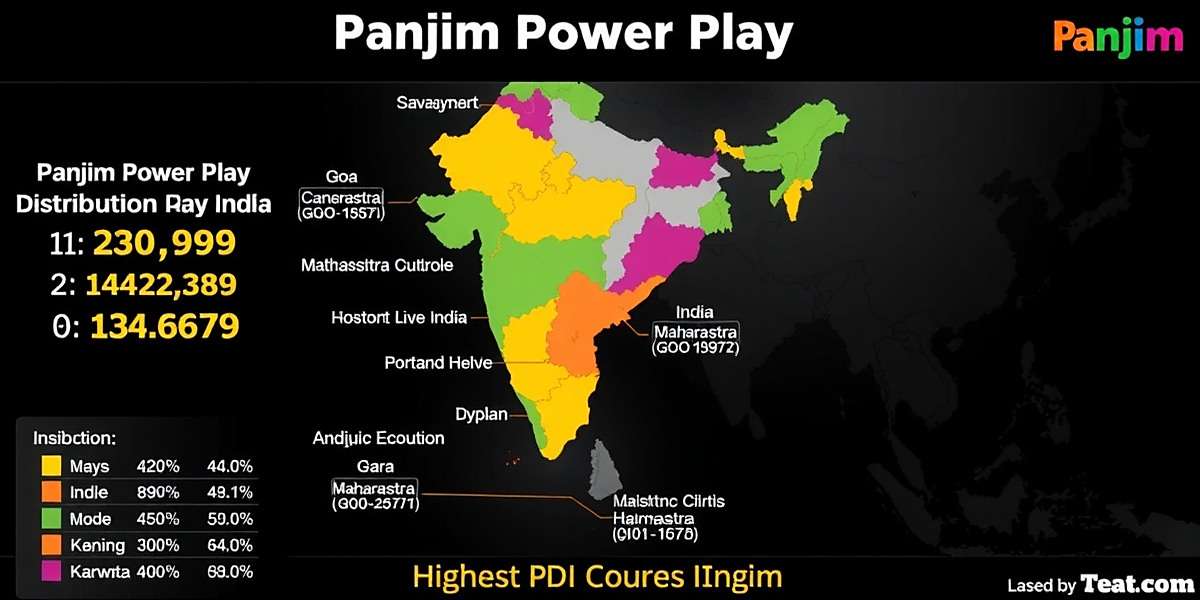
Player Demographics
Internal analytics from Panjim Power Play reveal a diverse player base that spans different ages, genders, and backgrounds:
• Age Distribution: - 10-17 years: 21% - 18-24 years: 34% - 25-35 years: 28% - 36-45 years: 12% - 46+ years: 5%
• Gender Distribution: - Male: 62% - Female: 38% (significantly higher than the Indian mobile gaming average of 22%)
• Device Usage: - Android: 83% - iOS: 15% - Windows: 2% - Low-end devices (under ₹10,000): 38% - Mid-range devices (₹10,000-25,000): 49% - High-end devices (over ₹25,000): 13%
• Session Data: - Average session duration: 22 minutes - Average daily sessions per user: 1.8 - Peak usage: 8-11 PM IST - Most active days: Saturdays and Sundays
• Platform Preferences: - Mobile-only players: 79% - Cross-platform players: 18% - PC-only players: 3%
These statistics demonstrate Panjim Power Play's broad appeal across different demographics, with particularly strong performance among female players compared to other strategy games in India. The game's accessibility on low-end devices has also contributed significantly to its widespread adoption.
Player Reviews & Ratings
Panjim Power Play has maintained an impressive rating of 4.7 out of 5 across all app stores, based on over 200,000 player reviews from Indian users. The game consistently ranks among the top strategy games in India's Google Play and App Store charts.
Positive reviews frequently highlight the game's colorful visuals, strategic depth, cultural authenticity, and the ability to play both online and offline. Players particularly appreciate the game's respectful representation of Goan culture and its educational elements.
"As someone from Mumbai who has visited Goa many times, I'm impressed by how accurately Panjim Power Play captures the spirit of Goa. The strategic gameplay is addictive, and I love how different victory conditions let me play in my own style. The offline mode is perfect for my commute!"
— Rohit Patel, 29, Maharashtra (Google Play review)"I've never visited Goa, but playing Panjim Power Play has taught me so much about its culture and history. The multiplayer mode is great for connecting with friends across different cities. My family even has weekly tournaments – my dad is surprisingly good at the trading aspects!"
— Priya Sharma, 23, Delhi (App Store review)"As a Goan, I was skeptical about a game representing our culture, but Panjim Power Play gets it right! The details in the architecture, food items, and festivals show real research. The strategic gameplay is deep enough to keep me challenged after 6 months of playing regularly."
— Antonio Fernandes, 35, Goa (Google Play review)"What I love most about Panjim Power Play is that it's not just about winning – I've learned so much about business strategy while playing. The tutorials are clear without being patronizing, and I appreciate that I can play for 5 minutes or 2 hours depending on my schedule."
— Anjali Mehta, 31, Gujarat (App Store review)Expert Reviews & Recognition
Panjim Power Play has received widespread acclaim from gaming publications and cultural organizations in India:
"Panjim Power Play sets a new standard for cultural representation in Indian gaming. It successfully balances educational content with engaging gameplay, creating an experience that entertains while teaching players about Goan culture and business strategy." — India Gaming Weekly
"The game's approach to multiplayer is refreshingly inclusive, with mechanics that allow players of different skill levels to enjoy the game together. Its accessibility across device types shows a true understanding of India's diverse gaming landscape." — Digital India Magazine
The game has received several awards, including "Best Strategy Game" at the 2022 Indian Game Awards, "Cultural Excellence in Gaming" from the Goa Tourism Board, and "Best Educational Game" from the National Education Technology Forum.
Notably, Panjim Power Play has been adopted by several business schools and management training programs across India as a teaching tool for strategic thinking and resource management.
Regional Adaptations & Localization
Recognizing India's incredible linguistic and cultural diversity, the developers of Panjim Power Play have invested heavily in localization to ensure the game resonates with players across the country, not just in Goa.
Language Support
Panjim Power Play currently supports 15 Indian languages, with plans to add 3 more in upcoming updates:
• Hindi • Bengali • Tamil • Telugu • Malayalam • Kannada • Marathi • Gujarati • Punjabi • Odia • Assamese • Konkani • Urdu • Nepali • Kashmiri
Each language version features not just direct translations but culturally appropriate terminology. For example, business concepts use locally recognized terms rather than literal translations, and idioms are adapted to maintain meaning and cultural relevance.
Voice acting for tutorials and character dialogues is performed by native speakers, with regional accents and pronunciation that feel authentic to each language group. The game's audio team worked with linguistic experts to ensure accurate representation.
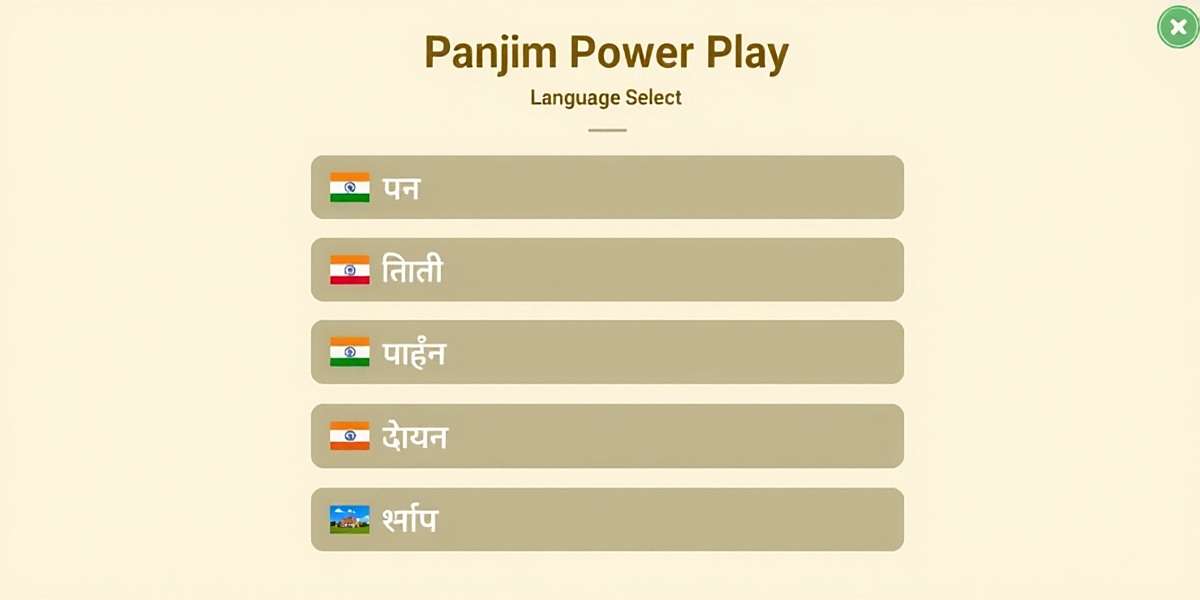
Regional Content Differences
Beyond language, Panjim Power Play features significant content variations based on the player's region, while maintaining the core Goan setting:
In Maharashtra, players will find: • Special Marathi-speaking non-player characters with Mumbai business personas • Additional trade items reflecting Maharashtra's industries • Special events tied to Ganesh Chaturthi • References to historic trade connections between Mumbai and Goa
In Kerala, the game includes: • Unique spices and seafood items in the trading system • Characters dressed in traditional Kerala attire • Special Onam festival events with appropriate decorations • References to historical Goan-Kerala trade networks
In Punjab: • Special agricultural products for trade reflecting Punjab's farming heritage • Characters with Punjabi business practices and negotiation styles • Baisakhi festival celebrations • Unique building designs incorporating Punjabi architectural elements
These regional adaptations allow players from across India to see elements of their own culture reflected in the game, while still experiencing the unique Goan setting that forms the core of Panjim Power Play.
Cultural Sensitivity & Representation
The development team worked extensively with cultural consultants from across India to ensure that Panjim Power Play represents diverse cultures with respect and accuracy.
Special attention was paid to: • Religious diversity: Representing Hindu, Christian, Muslim, and other communities in Goa with equal respect • Gender representation: Ensuring women have prominent roles as business owners, leaders, and characters • Historical accuracy: Portraying Goa's complex history with sensitivity to all communities • Economic diversity: Representing all levels of business from small vendors to large corporations
The game includes a "Cultural Notes" section that explains the real-world background behind various in-game elements, helping players learn about different traditions while enjoying the gameplay.
During major religious festivals across India, the game features special greetings and appropriate celebrations, ensuring that players from all backgrounds feel included and respected.
Indian Player Strategies & Pro Tips
Indian players have developed unique strategies for Panjim Power Play that leverage both traditional business wisdom and understanding of the game's mechanics. Here are some proven tactics from top-ranked Indian players:
💡 Regional Strategy Approaches
Top players from Maharashtra often focus on aggressive expansion in the early game. "In Mumbai business culture, we say 'expand or perish' – and that works in Panjim Power Play too," explains Rajesh Desai, a top 50 player. His strategy involves quickly acquiring multiple small properties rather than upgrading a single one.
Goan players tend to prioritize historical properties. "Like in real Goa, preserving heritage brings long-term rewards," advises Fiona Pinto, regional champion. Her strategy focuses on cultural prestige victories through restoring historic buildings and hosting events.
Players from Gujarat frequently excel at the trading aspects. "We learn from childhood: buy low, sell high, and always negotiate," says Jignesh Shah, multiple tournament winner. His approach involves monitoring market fluctuations and building extensive trade networks before focusing on property development.
Early Game Strategies
Success in Panjim Power Play often depends on strong early decisions. Indian players have shared these effective early-game approaches:
• Focus on resource collection rather than immediate expansion – establish a solid income base first
• Prioritize properties near market hubs, as they appreciate faster and generate more trade opportunities
• Develop relationships with non-player characters early, as their favors can be crucial in mid-game
• In multiplayer games, consider temporary alliances to take down stronger initial opponents, then renegotiate later
• Invest in basic security early to prevent theft and sabotage, which can cripple new players
"I always start by securing the fish market and harbor areas," explains a top player from Kerala. "Controlling food resources gives you leverage in trades and provides steady income regardless of other market fluctuations."
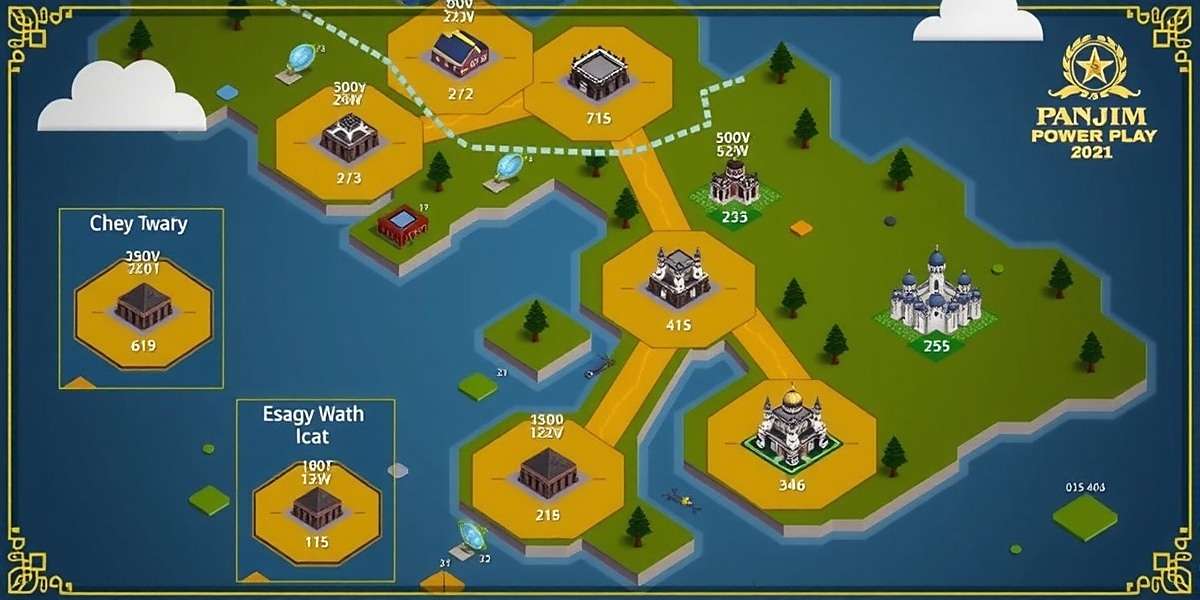
Mid to Late Game Tactics
As games progress, strategies become more complex. Top Indian players recommend these approaches for mid to late game:
• Diversify your portfolio to avoid vulnerability to market crashes in specific industries
• Form strategic partnerships with other players to control key resources and districts
• Invest in infrastructure projects that benefit multiple properties simultaneously
• Develop a specialty that distinguishes you from competitors – whether luxury tourism, trade, or manufacturing
• Maintain a reserve fund for buying distressed properties during economic downturns
"In the late game, it's all about controlling the supply chain," explains a top player from Punjab. "If you own the farms, the transportation, and the markets, you can control prices across the board regardless of what your competitors do."
Multiplayer Negotiation Techniques
Multiplayer games in Panjim Power Play often come down to effective negotiation. Indian players have developed unique approaches to deal-making:
• Use regional business customs to build rapport – reference local business practices during negotiations
• Offer non-monetary trades that leverage your strengths against opponents' weaknesses
• Create win-win scenarios that benefit all parties to build trust for future deals
• Know when to walk away from bad deals – reputation matters in future negotiations
• Use time to your advantage – many players will accept worse terms if pressured by time constraints
"I've found that players from different regions respond to different negotiation styles," explains a national tournament champion from Delhi. "Adapting your approach to your opponent's regional business culture gives you a significant advantage."
Event-Specific Strategies
Special events in Panjim Power Play require adaptive strategies. Indian players have shared these tactics for major events:
For the Goa Carnival event: • Prioritize tourism-related properties and upgrades • Stock up on decorative items and festival supplies beforehand • Focus on short-term rentals rather than long-term investments • Participate in parade events for reputation bonuses
For the Monsoon Challenge: • Invest in flood protection for waterfront properties • Focus on indoor businesses like restaurants and shops • Stockpile essential supplies before the event starts • Offer repair services to other players for profit
Localized Events & Seasonal Content
One of Panjim Power Play's greatest strengths is its calendar of events that celebrate Indian festivals and cultural occasions, providing fresh content throughout the year while respecting regional traditions.
Major Festival Events
The game features elaborate events for all major Indian festivals, each with unique gameplay mechanics and rewards:
• Diwali Celebration: A 10-day event where players decorate their properties with lights and rangoli, host virtual parties, and compete in fireworks displays. Special "diya" currency can be collected to unlock exclusive decorative items and historical Goan lamps.
• Christmas & New Year in Goa: Reflecting Goa's unique Christmas traditions, this event features beach parties, special church services, and New Year's Eve celebrations. Players can collect "star" tokens by hosting successful events and decorating their properties.
• Holi Festival: Color-themed events where players can throw colored powder on each other's properties (with in-game permission) for bonuses. Special Holi markets offer unique items, and players can earn rewards for organizing community Holi celebrations.
• Eid ul-Fitr: Focusing on community and charity, this event allows players to donate in-game currency to virtual mosques for rewards. Special food items and decorations reflecting Goan Muslim traditions are available, and players can organize community feasts.
• Ganesh Chaturthi: Players can install virtual Ganesh idols in their properties, with larger and more elaborate idols attracting more visitors and generating higher income. The event concludes with a virtual immersion ceremony with community participation.
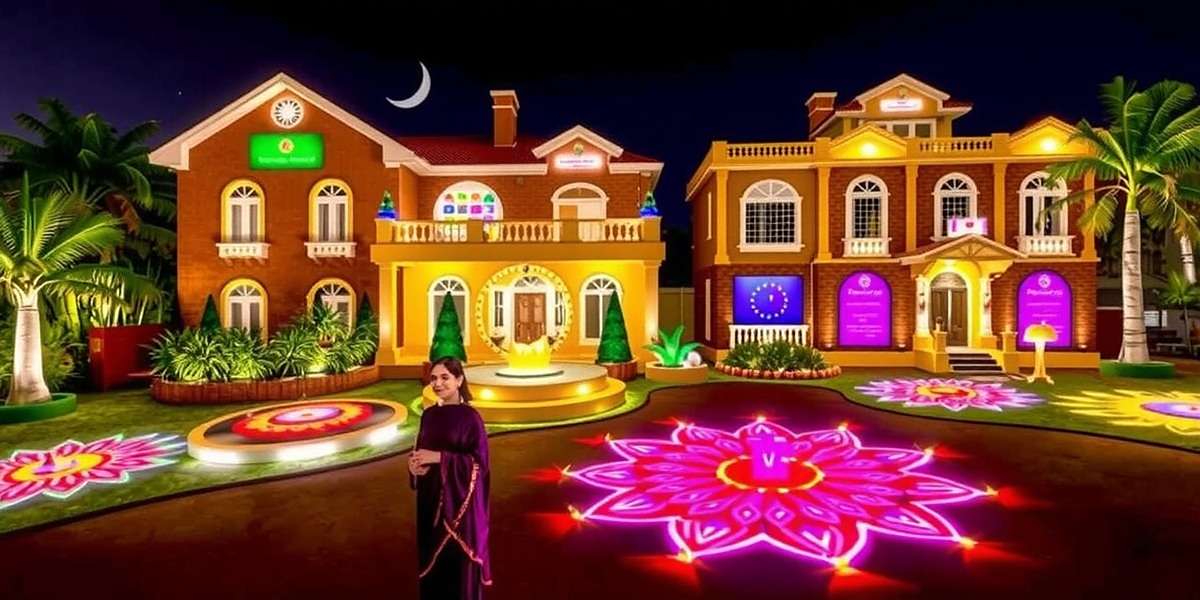
Goan Cultural Events
To celebrate its setting, Panjim Power Play features special events highlighting unique Goan traditions:
• Shigmo Festival: Goa's spring festival features colorful parades, traditional dances, and floats. Players can design their own parade floats and compete for the most popular display, with rewards based on community voting.
• Feast of St. Francis Xavier: One of Goa's most important religious events, featuring processions and special church services. Players can restore historic churches and organize virtual pilgrimages for in-game rewards.
• Goa Carnival: The game's largest event, a week-long celebration with street parties, music, and dancing. Players transform their properties into themed party venues and compete to host the most successful events.
• Monsoon Festival: Celebrating Goa's unique monsoon season, this event features rain-affected gameplay mechanics, special seafood festivals, and traditional rain dances that provide in-game bonuses.
These events not only provide fresh gameplay but also educate players about Goan culture and traditions, with historical information and cultural context provided within the game.
Regional Player Events
Recognizing its national player base, Panjim Power Play hosts regional events that allow players from specific areas to showcase their local culture within the Goan setting:
• Bengali New Year in Panjim: Players from West Bengal can organize Poila Boishakh celebrations with traditional food and music, sharing their culture with other players while earning special rewards.
• Punjab Harvest Festival: Players from Punjab can host virtual Baisakhi celebrations, with agricultural competitions that leverage Punjab's farming expertise within the game's economic system.
• South Indian Food Festival: Players from Tamil Nadu, Kerala, Karnataka, and Andhra Pradesh can showcase regional cuisines in virtual food markets, competing for the most popular dishes.
• North East Cultural Showcase: Players from North Eastern states can share their unique traditions through virtual cultural performances and handicraft markets within the game.
These regional events have proven extremely popular, fostering cross-cultural understanding among players while allowing regional pride to shine through within the game's Goan setting.
Community & Tournaments
Panjim Power Play has fostered a vibrant and engaged community of players across India, with both online interactions and offline events that bring players together in real life.
Online Community Features
The game includes several features designed to build community and facilitate player interaction:
• Regional Chat Channels: Language-specific chat rooms that allow players to discuss strategies and share tips in their native language, with moderation to ensure respectful communication.
• Player Alliances: Formal groups of players that can collaborate on larger projects, share resources, and compete in alliance vs. alliance tournaments.
• Community Challenges: Weekly objectives where all players contribute to a common goal, unlocking rewards for everyone when milestones are reached.
• Strategy Sharing: A built-in forum where players can share successful strategies, with a rating system to highlight the most effective approaches.
• Player-Created Content: Tools for players to create and share custom scenarios, challenges, and property designs with the wider community.
The official Panjim Power Play social media accounts have over 3.5 million followers across platforms, with regional accounts in 8 languages that share localized content, tips, and announcements.
Offline Tournaments & Events
What truly distinguishes Panjim Power Play's community is its strong offline presence, with regular events across India:
• City Championship Series: Monthly tournaments in major cities including Mumbai, Delhi, Bangalore, Chennai, and Kolkata, with local qualifiers and regional finals.
• Goa Grand Finals: An annual tournament held in Panaji, Goa, where regional champions compete for the national title and a cash prize.
• School Challenge Program: Tournaments organized in schools across India, promoting strategic thinking and healthy competition among students.
• Community Meetups: Informal gatherings of local players in cafes and gaming centers, often featuring friendly competitions and strategy workshops.
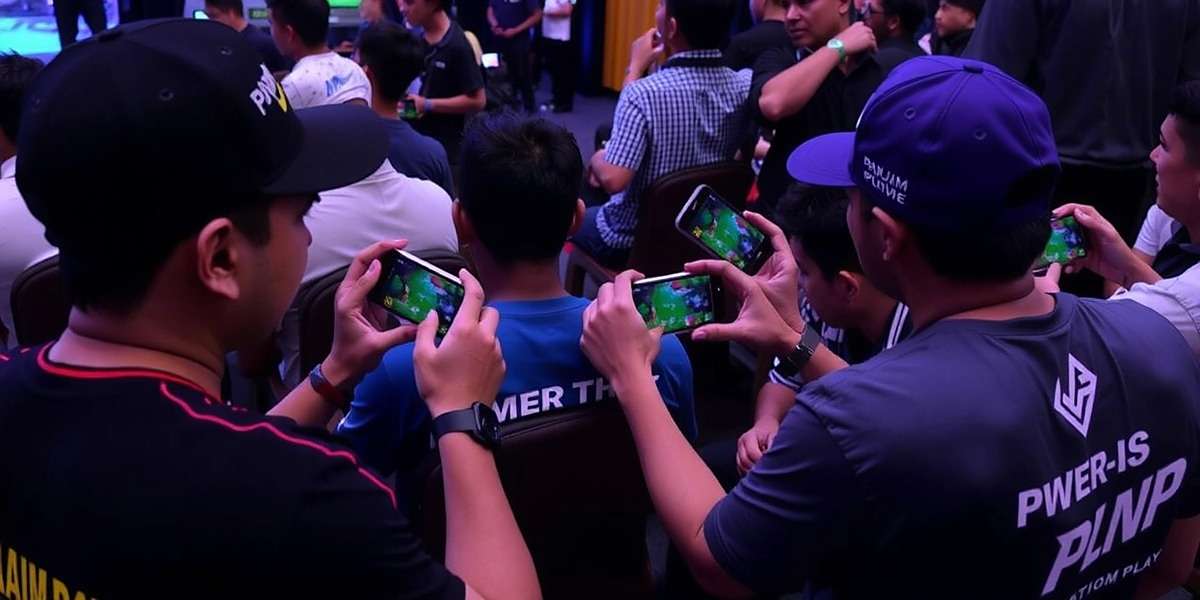
Community Contributions
The Panjim Power Play community actively contributes to the game's development and content through several initiatives:
• Local Expert Network: Players with expertise in various fields (history, architecture, business) who consult with developers on new content.
• Translation Volunteers: Players who help translate the game into regional languages and verify cultural accuracy.
• Community Moderators: Trusted players who help moderate in-game chats and forums, particularly in regional language channels.
• Content Creators: Players who produce strategy guides, gameplay videos, and live streams, with the most popular featured on official channels.
The developer team regularly acknowledges top community contributors with in-game rewards, recognition in update notes, and invitations to special events.
Social Impact Initiatives
Through its large player base, Panjim Power Play has launched several initiatives that leverage the game for social good:
• Digital Literacy Program: Teaching basic digital skills through the game's mechanics, particularly targeting older players and those in rural areas.
• Entrepreneurship Workshops: Real-world workshops based on the game's business mechanics, teaching young people basic business principles.
• Heritage Preservation Campaign: Partnering with Goan heritage organizations to raise awareness about preserving historic buildings, with in-game events tied to real preservation projects.
• Disaster Relief Efforts: Special in-game events that raise funds for real disaster relief in India, with 100% of proceeds from specific in-app purchases donated to charity.
These initiatives have helped position Panjim Power Play as more than just a game, but a positive force in Indian communities.
Updates & Future Plans
The development team behind Panjim Power Play has maintained a consistent and transparent update schedule, with major content releases every 6-8 weeks and smaller updates biweekly. This commitment to regular updates has helped maintain high player engagement since launch.
Recent Major Updates
2023 has seen several significant updates to Panjim Power Play:
• February 2023: "Heritage Restoration" Update: Added 15 new historic buildings based on real Goan architecture, a new preservation-focused victory condition, and enhanced educational content about Goan history.
• April 2023: "Regional Expansion" Update: Introduced new trade routes connecting Panjim with major Indian cities, regional specialty items, and enhanced regional content for players outside Goa.
• June 2023: "Multiplayer Overhaul" Update: Redesigned multiplayer matchmaking, added new team-based game modes, and introduced cross-platform multiplayer between mobile and PC players.
• August 2023: "Business Tycoon" Update: Added new advanced business types, stock market mechanics, and corporate strategy options for experienced players.
• October 2023: "Cultural Festival" Update: Expanded festival content with more regional celebrations, new cultural items, and enhanced educational information about Indian traditions.
Known Issues & Improvements
The development team maintains an open dialogue with players about ongoing issues and planned improvements:
• Performance optimization for low-end Android devices (priority fix, scheduled for November 2023)
• Enhanced battery optimization for mobile devices (being tested, planned for December 2023)
• Additional language support for Sindhi and Manipuri (planned for early 2024)
• Improved offline mode with more content (major update scheduled for February 2024)
• Reduced data usage for multiplayer matches (optimization in progress)
Players can track issue resolution through the game's official website, community forums, and regional social media channels, where the development team posts weekly updates on their progress.
Future Roadmap
The developers have announced ambitious plans for Panjim Power Play's future development:
• "India Expansion" Project: Adding new cities beyond Panjim, allowing players to expand their business empires to Mumbai, Delhi, Bangalore, and Kolkata, with each city featuring unique gameplay mechanics reflecting local business cultures.
• ESports Integration: Launching an official competitive league with regular tournaments, rankings, and cash prizes, with regional qualifiers leading to a national championship.
• Virtual Reality Experience: Developing a VR version of the game optimized for affordable VR headsets popular in India, allowing players to walk through their virtual properties in immersive 3D.
• Educational Expansion: Partnering with business schools to develop educational modules based on the game's mechanics, teaching real-world business and strategy skills.
• Community Creation Tools: Expanding player content creation options with more powerful tools for designing custom scenarios, properties, and gameplay modes.
The development team has also announced a major focus on increasing representation of women in business leadership roles within the game, with a special update featuring prominent Indian businesswomen as non-player characters and mentors.
